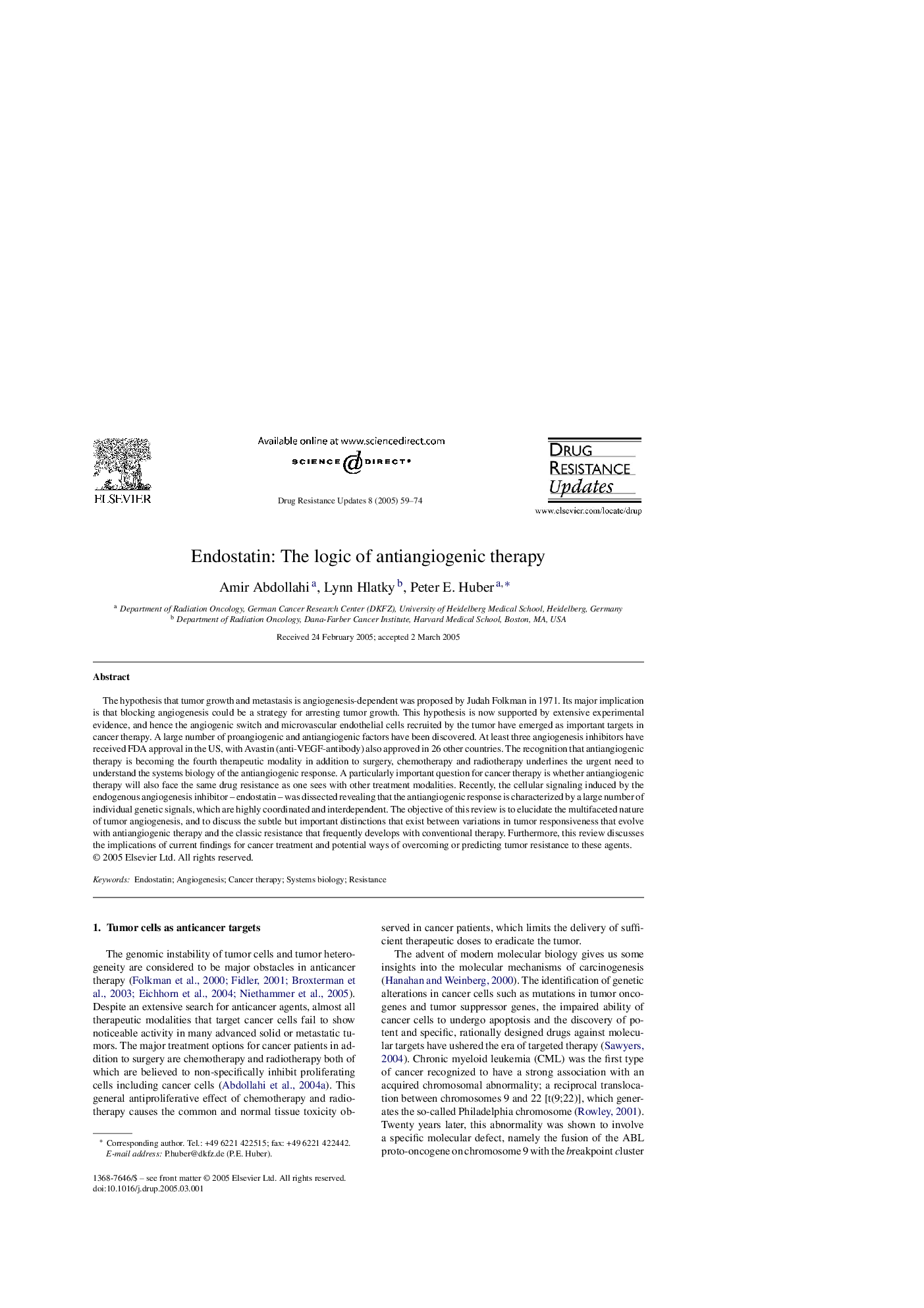| Article ID | Journal | Published Year | Pages | File Type |
|---|---|---|---|---|
| 9905654 | Drug Resistance Updates | 2005 | 16 Pages |
Abstract
The hypothesis that tumor growth and metastasis is angiogenesis-dependent was proposed by Judah Folkman in 1971. Its major implication is that blocking angiogenesis could be a strategy for arresting tumor growth. This hypothesis is now supported by extensive experimental evidence, and hence the angiogenic switch and microvascular endothelial cells recruited by the tumor have emerged as important targets in cancer therapy. A large number of proangiogenic and antiangiogenic factors have been discovered. At least three angiogenesis inhibitors have received FDA approval in the US, with Avastin (anti-VEGF-antibody) also approved in 26 other countries. The recognition that antiangiogenic therapy is becoming the fourth therapeutic modality in addition to surgery, chemotherapy and radiotherapy underlines the urgent need to understand the systems biology of the antiangiogenic response. A particularly important question for cancer therapy is whether antiangiogenic therapy will also face the same drug resistance as one sees with other treatment modalities. Recently, the cellular signaling induced by the endogenous angiogenesis inhibitor - endostatin - was dissected revealing that the antiangiogenic response is characterized by a large number of individual genetic signals, which are highly coordinated and interdependent. The objective of this review is to elucidate the multifaceted nature of tumor angiogenesis, and to discuss the subtle but important distinctions that exist between variations in tumor responsiveness that evolve with antiangiogenic therapy and the classic resistance that frequently develops with conventional therapy. Furthermore, this review discusses the implications of current findings for cancer treatment and potential ways of overcoming or predicting tumor resistance to these agents.
Related Topics
Life Sciences
Biochemistry, Genetics and Molecular Biology
Cancer Research
Authors
Amir Abdollahi, Lynn Hlatky, Peter E. Huber,
